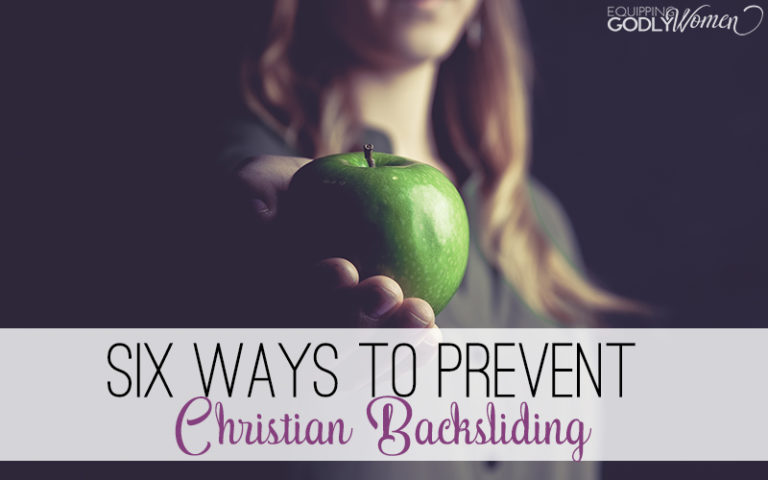What Is Fasting in the Bible? (Christian Fasting Explained)

Some friends in the campus ministry I was a part of decided to participate in a Christian fast together.
We went 24 hours without eating food and drank only water.
I don’t remember why we were fasting, but I do remember how it made me feel. It was hard. But also kind of awesome.
I’ve participated in a variety of fasts in the 20 years since then, some on my own and some as part of a community. Fasting for Christians is a powerful way to elevate your prayers and your relationship with God.
Yet even now I’m still learning about Christian fasting! I did a bunch of research for this article and was surprised to discover there were some things I didn’t know.
If you want to know what the Bible says about fasting, this article covers the definition of Biblical fasting, how to fast, why to fast, and the most relevant Scriptures on fasting.
What Is Fasting in the Bible? (Definition)
Fasting in the Bible is a spiritual practice that involves voluntarily avoiding food, drink, or other substances or activities for a specific period.
Found during significant events throughout the Old and New Testaments, fasting in the Bible could be an act of seeking guidance or intercession, expressing grief, showing devotion, or practicing repentance. A Christian fast is a practice that closely follows this tradition.
Types of Fasting in the Bible (How to Fast)
While there isn’t a clearly set number of different types of fasting in the Bible, some helpful categories for how to fast include:
- total fasting.
- partial fasting.
- corporate fasting.
- habitual fasting.
- abstinence from something other than food and drink.
These are all approaches that we may consider when observing a Christian fast. Note that they can have some overlap with each other.
1. Total Fasting
A total fast is the most extreme form of fasting in the Bible and involves taking in no food or water for a period of time. Some of the most notable instances of total fasting in the Bible of this nature include Moses on Mount Sinai (Exodus 34:28, Deuteronomy 9:9), Esther and the Jewish people before she met with the king (Esther 4:16), and Saul (Paul) when he encountered Christ (Acts 9:9). Moses’ experience was clearly supernatural.
This approach to fasting is one of the most difficult to follow because it deprives you of your most basic needs. While Biblical fasting is a way to trust God’s provision, you still want to approach it wisely and safely!
Related: How to Fast Safely: 10 Helpful Tips
2. Partial Fasting
A partial fast is similar to a total fast in that it involves abstaining from food or drink but isn’t as strict. A common way to fast is to avoid food but still drink water. You might also abstain from certain types of food or drink like meat, alcohol, or sugar, or do something like a liquid fast or whole food-only fast.
While there is some debate about this, most of the examples of fasting in the Bible involved fasting from food. Total fasting from both and water can be inferred when the text explicitly says so. Otherwise, it’s assumed that the people involved drank water during the fast.
Another example of partial fasting in the Bible is when Daniel requested to have only vegetables and water (Daniel 1:8–16). The Daniel fast is a popular modern adaptation of these Scriptures on fasting.
Personally, abstaining from certain foods for a time but still drinking water is my preferred way to approach fasting for God. It’s challenging and spiritually meaningful but is also generally more accessible than total fasting.
3. Abstinence Fasting
Fasting in the Bible doesn’t have to be just from food or drink; it can also be abstinence from certain activities or substances. Examples of this type of fasting include not using lotion (Daniel 10:3) and avoiding sex (Exodus 19:15, 1 Corinthians 7:5).
This is a popular approach to Christian fasting today. While there aren’t many examples in the Bible, it is still a practical way to deny yourself and draw nearer to God. You can fast from things like social media, spending, or anything you find pleasurable.
4. Corporate Fasting
Corporate fasting is any kind with a group. This practice could be something like Lent, which is observed worldwide, or with your local church or small group.
Examples of corporate fasting in the Bible include the Israelites when Moses was on Mt. Sinai (Exodus 19:15), the Jewish people when they were praying for Esther (Esther 4:16), Daniel together with his friends (Daniel 1), and the remnant of God’s people when they returned to Jerusalem (Ezra 8:21).
I like corporate fasting because it gives you a sense of solidarity and unity with other people. If it’s an especially challenging fast, it’s encouraging to have people doing it with you!
Related: Catholic Lent Fasting Rules Made Easy (Complete Guide!)
5. Habitual Fasting
Habitual fasting is any type of fasting practiced as a spiritual discipline, intended to help you grow and deepen your relationship with God. You can observe habitual fasting as often as you want.
Some examples of people who practiced habitual fasting in the Bible include Anna (Luke 2:37) and the Pharisees (Luke 18:12).
Some people choose to fast for health purposes, so making it a habitual spiritual fast is a practical way to care for your body and draw close to God while you do so.
Purpose of Christian Fasting (Why to Fast)
There are many purposes of Christian fasting, or reasons why to fast in the Bible including:
- seeking guidance.
- expressing grief.
- showing repentance and humility.
- praying for God’s intercession and deliverance.
- worshiping and showing devotion.
These examples of fasting for God are just a few possible categories and can easily overlap. There is really no limit to reasons to fast.
Another way to look at Biblical fasting is as an extension of an active prayer life. If you’re praying in any way or form, you can be fasting too!
Related: Tired of Boring, Routine Prayers? Here are 10 New Ways to Pray!
1. Seeking Guidance
This kind of fasting in the Bible was recorded when God’s people were seeking His will and His wisdom in their next steps. One example of this is in Acts 13:3 when the leaders in Antioch were preparing to send Saul (Paul) and Barnabus on a mission trip.
Christians today can easily imitate this type of Biblical fasting whether we’re sending out missionaries of our own or doing anything to advance God’s kingdom.
2. Expressing Grief
Fasting in the Bible is often used as an expression of grief. The scribe Ezra mourned over the unfaithfulness of the Israelite exiles and expressed his grief through fasting (Ezra 10:6). Jesus also connected fasting with mourning in Matthew 9:15 as he explained why His disciples were not fasting while they were with Him.
Many of us in modern Western culture struggle with processing grief. Christian fasting is a way to connect what’s happening in your heart and soul to your physical body.
3. Repentance and Humility
Fasting in the Bible is frequently practiced as an expression of repentance from sin and humility before God. In Joel 2:12, God calls His wayward people back to him and asks them to fast, mourn, and weep.
If you’ve ever been fasting for God, then you know that it is a very humbling experience! It pairs well with repentance because it helps you be more in touch with your own weaknesses and need for God’s strength and provision.
4. Intercession and Deliverance
There are many instances of fasting in the Bible that are connected with praying for God’s intercession and deliverance in times of need. This was the purpose of fasting for Esther before she went to the king of Persia to ask for his help.
There have been times I’ve fasted in which it felt like an amplification of my prayer requests. While God can hear us anyway, fasting for deliverance helps our own hearts trust in God as we express our needs.
5. Worship and Devotion
You don’t need a specific reason to fast; fasting in the Bible is also simply an act of worship and devotion to the Lord. Isaiah 58 describes “true fasting” that accompanies a life of faithfulness that also shows generosity and justice.
Christian fasting isn’t just an item to check off your spiritual checklist. When practiced prayerfully, it’s part of a whole life that walks in step with God’s Spirit.
Related: What Is the “Fruit of the Spirit” in the Bible?
Interesting Fasting Scriptures
There are many Bible verses about fasting in the Bible! Here’s a convenient list of the most relevant fasting Scriptures that you can use for quick reference. As you read this, consider the types of fasting you see, as well as their purpose.
Exodus 19:14–15
After Moses had gone down the mountain to the people, he consecrated them, and they washed their clothes. Then he said to the people, “Prepare yourselves for the third day. Abstain from sexual relations.”
As an act of worship and ritual cleansing, the Israelites observed a corporate fast, during which they abstained from sex.
Exodus 34:28
Moses was there with the Lord forty days and forty nights without eating bread or drinking water. And he wrote on the tablets the words of the covenant—the Ten Commandments.
In this well-known example of fasting in the Bible, Moses had the supernatural ability to survive a total fast while he received the Ten Commandments from the Lord.
Deuteronomy 9:9
When I went up on the mountain to receive the tablets of stone, the tablets of the covenant that the Lord had made with you, I stayed on the mountain forty days and forty nights; I ate no bread and drank no water.
Here Moses recounted his fasting for God which was first recorded in Exodus.
1 Samuel 7:5–6
Then Samuel said, “Assemble all Israel at Mizpah, and I will intercede with the Lord for you.” When they had assembled at Mizpah, they drew water and poured it out before the Lord. On that day they fasted and there they confessed, “We have sinned against the Lord.” Now Samuel was serving as leader of Israel at Mizpah.
In this example of fasting in the Bible, the Israelites performed a corporate fast as an act of repentance from their idolatry. It was also a petition to the Lord for deliverance from the Philistines.
2 Samuel 2:15–17
After Nathan had gone home, the Lord struck the child that Uriah’s wife had borne to David, and he became ill. David pleaded with God for the child. He fasted and spent the nights lying in sackcloth on the ground. The elders of his household stood beside him to get him up from the ground, but he refused, and he would not eat any food with them.
David used fasting as a way to petition God to save the life of his sick child. Interestingly, he stopped fasting after the child died.
1 Kings 19:8
He got up and ate and drank; then he went in the strength of that food forty days and forty nights to Horeb the mount of God. (NRSV)
This story about fasting in the Bible recounts when Elijah fasted 40 days and nights while fleeing from Ahab and Jezebel. (I’ve used NRSV in this instance because it more clearly indicates that he didn’t have additional food and water.)
Ezra 8:21-23
There, by the Ahava Canal, I proclaimed a fast, so that we might humble ourselves before our God and ask him for a safe journey for us and our children, with all our possessions. I was ashamed to ask the king for soldiers and horsemen to protect us from enemies on the road, because we had told the king, “The gracious hand of our God is on everyone who looks to him, but his great anger is against all who forsake him.” So we fasted and petitioned our God about this, and he answered our prayer.
Ezra missed a proclamation for a corporate fast for the returned exiles. It was an act of humility and prayerful petition.
Ezra 10:6
Then Ezra withdrew from before the house of God and went to the room of Jehohanan son of Eliashib. While he was there, he ate no food and drank no water, because he continued to mourn over the unfaithfulness of the exiles.
In another instance of Ezra’s fasting in the Bible, he observed a total fast as an act of mourning.
Esther 4:16
“Go, gather together all the Jews who are in Susa, and fast for me. Do not eat or drink for three days, night or day. I and my attendants will fast as you do. When this is done, I will go to the king, even though it is against the law. And if I perish, I perish.”
As part of a petition to God for help, Esther and the Jewish people practiced a total fast for three days.
Isaiah 58:6
“Is not this the kind of fasting I have chosen:
to loose the chains of injustice
and untie the cords of the yoke,
to set the oppressed free
and break every yoke?”
This verse is part of a longer passage on fasting in the Bible in which God declares that “true fasting” is accompanied by acts of mercy and justice. It isn’t just an empty religious ritual.
Daniel 1:11–12
Daniel then said to the guard whom the chief official had appointed over Daniel, Hananiah, Mishael and Azariah,“Please test your servants for ten days: Give us nothing but vegetables to eat and water to drink.”
In this story of fasting in the Bible, Daniel and his friends requested to abstain from certain foods while in service to the king of Babylon.
Daniel 10:2–3
At that time I, Daniel, mourned for three weeks. I ate no choice food; no meat or wine touched my lips; and I used no lotions at all until the three weeks were over.
Daniel demonstrated Biblical fasting by abstaining from certain foods and other pleasures in an act of mourning.
Joel 2:12
“Even now,” declares the Lord,
“return to me with all your heart,
with fasting and weeping and mourning.”
In this call to repentance through the prophet Joel, the Lord pleaded with His people to turn back to Him. They could show their genuine repentance through fasting.
Jonah 3:5
The Ninevites believed God. A fast was proclaimed, and all of them, from the greatest to the least, put on sackcloth.
It wasn’t just the Israelites who fasted as an act of repentance. After Jonah preached to them, the notoriously evil people of Nineveh did too!
Matthew 4:1-2
Then Jesus was led by the Spirit into the wilderness to be tempted by the devil. After fasting forty days and forty nights, he was hungry.
Jesus himself fasted in an act of humility and devotion, imitating Moses’ and Elijah’s 40-day fasts, before being tempted by the devil.
Matthew 6:16–18
“When you fast, do not look somber as the hypocrites do, for they disfigure their faces to show others they are fasting. Truly I tell you, they have received their reward in full. But when you fast, put oil on your head and wash your face, so that it will not be obvious to others that you are fasting, but only to your Father, who is unseen; and your Father, who sees what is done in secret, will reward you.”
As part of the Sermon on the Mount, Jesus got to the heart of Biblical fasting. It shouldn’t be done for just for show.
Matthew 9:15
Jesus answered, “How can the guests of the bridegroom mourn while he is with them? The time will come when the bridegroom will be taken from them; then they will fast.”
When asked why His disciples didn’t fast as the disciples of John and the Pharisees did, Jesus explained that they did not need to fast while He was among them. He indicated that they would fast in mourning when He left them.
Luke 2:36–37
There was also a prophet, Anna, the daughter of Penuel, of the tribe of Asher. She was very old; she had lived with her husband seven years after her marriage, and then was a widow until she was eighty-four. She never left the temple but worshiped night and day, fasting and praying.
Anna, a prophetess and one of the first people to behold the Messiah, practiced habitual fasting in the temple as an ongoing expression of devotion and worship.
Luke 18:9–12
To some who were confident of their own righteousness and looked down on everyone else, Jesus told this parable: “Two men went up to the temple to pray, one a Pharisee and the other a tax collector. The Pharisee stood by himself and prayed: ‘God, I thank you that I am not like other people—robbers, evildoers, adulterers—or even like this tax collector. I fast twice a week and give a tenth of all I get.'”
In a parable, Jesus talked about habitual fasting done the wrong way: as an empty religious act.
Acts 9:9
For three days he was blind, and did not eat or drink anything.
When Saul (Paul) encountered the risen Jesus on the road and was struck blind, he fasted before getting baptized.
Acts 13:2–3
While they were worshiping the Lord and fasting, the Holy Spirit said, “Set apart for me Barnabas and Saul for the work to which I have called them.” So after they had fasted and prayed, they placed their hands on them and sent them off.
The church leaders in Antioch observed Christian fasting before sending people on a mission trip.
1 Corinthians 7:5
Do not deprive each other except perhaps by mutual consent and for a time, so that you may devote yourselves to prayer. Then come together again so that Satan will not tempt you because of your lack of self-control.
In his instruction to married couples, Paul suggested a Christian fast from sex as an act of devotion and worship.
Leave a comment: Have you ever participated in Christian fasting? Based on examples of fasting in the Bible, how would you like to try it in the future?






